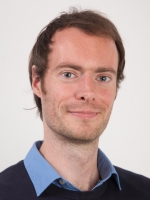Members
Marta Sznajder (LMU Munich) is a Postdoctoral Fellow at the Munich Center for Mathematical Philosophy. Previously she held a postdoctoral position at the Czech Academy of Sciences and was a researcher at the University of Groningen. Her research concerns the history and philosophical context of Carnapian inductive logic. She is particularly interested in the normative import of inductive logic on belief, and its relation to practical rationality. Her doctoral project was concerned with the relation between inductive logic and the theory of conceptual spaces. In 2018, she was awarded the Kristeller-Popkin Travel Fellowship for research in the Carnap archives in Pittsburgh and Los Angeles. She holds a BA and MA in Philosophy (Wrocław), an MSc in Logic (Amsterdam), and a PhD in Philosophy from LMU Munich and the University of Groningen (double degree). Within the network, she is looking forward to enriching her historical work with the insights learned from the practicioners of inductive logic coming from the sciences. For more information, please visit her website.







